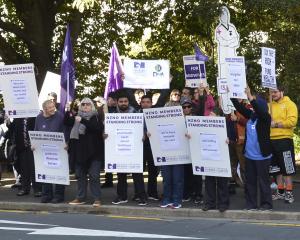
Implementation manager for the South Island neurosurgical service, Joy Farley, said in a media release while that was disappointing, it did not change the service's intent to establish permanent neurosurgeons in Dunedin as part of a sustainable South Island-wide service.
"As anyone who has experience in employing clinical staff from overseas can tell you, it is not until the person is in the hospital that you can relax. Circumstances change and it's no-one's fault."
It had always been anticipated it would take some time to employ permanent neurosurgeons, she said.
Under the plans for the regional service, there are to be three resident neurosurgeons based in Dunedin, with two of them also having academic positions at the University of Otago, one as a professor.
At the first meeting of the neurosurgical service's governance board late last month it was agreed advertising for at least one of the academic positions would begin this month.
The Swedish neurosurgeon not coming is Magnus Olivecrona (51), a consultant of 17 years' experience, named last year as the first of the two consultants who were controversially offered appointments by chief executive Brian Rousseau in June, when the service was still under review.
At that stage the Dunedin service had been covered by locums, with some help from the Canterbury board since its last permanent appointee, Susan Jackson, left in January 2009.
It is not known what stage negotiations with another neurosurgeon had reached, but late last year it was clear the employment process was not as advanced as Mr Olivecrona's.
The German candidate had not been named, nor had there been any indication of when he might be expected to arrive.
Ms Farley said recommendations of the expert panel that outlined the future of the regional service had not been dependent on the two neurosurgeons.
As well as looking for appointments for the Dunedin service, the board has started working to employ a clinical director for the whole service and was "progressing rapidly along that path", she said.
Two locum neurosurgeons in Dunedin had been doing "an excellent job" and the early appointment of a clinical director would give them the sort of professional support they needed, she said.
Under the new service the Canterbury and Southern boards will continue to be the employers of neurosurgeons in the service, but appointments must still be approved by the governance board.








